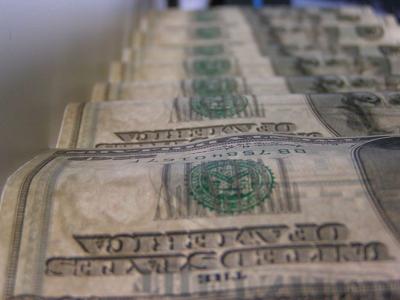Without question, those with the least suffered the most the past year. Folks with lower-income jobs — restaurant and hotel workers, childcare providers, teachers, moms — are still being tossed by the receding floodwaters of this economic storm.
The system is awash with stimulus cash, and it’s up to our state representatives, county commissions and town councils to direct it where it most needs to go.
The General Assembly calls it the Colorado Comeback, but where we were before left a lot of Coloradans behind. The pandemic only tightened the squeeze on people already in a vice.
'This is the launch of the Colorado comeback': Governor, legislators unveil Colorado Recovery Plan
Besides the $5.7 billion or so Colorado expects from Washington, the state is spending about $800 million on the recovery.
It's easy to get lost in all those zeroes in a comeback laden with tax breaks, voluntary soil improvements, revitalized city centers, incentives to attract conventions and "economic gardening," an inflated term for helping businesses grow.
The focus on who needs help the most and first tends to list about.
Senate Bill 231 adds $3 million to the $20 million budget for the Weatherization Assistance Program. The bad news is that legislative analysts said the program only serves about 2,000 homes a year, when about 500,000 Colorado households could qualify. A 15% one-time spike is something, I suppose.
Yet, it's another piece of legislation, not billed as part of the comeback, that takes on the need more directly.
House Bill 1105 would help low-income Coloradans pay their utility bills from a $1 monthly fee on electricity bills and a $1 fee on gas bills, while allowing water providers to set a fee for water bill assistance.
House Democrats, who are driving the bill, said 1 in 4 households in the state struggled to pay their utility bills before the pandemic. State and federal stimulus money to the tune of $13 million helped pay bills for 25,000 Colorado households the past year.
Money and good intentions are often released in a hurry then diluted with bureaucracy.
After the floods of 2013, I stayed on the relief issue a while after. I wrote about well-meaning appointed boards and clueless elected officials splashing around in the disaster relief money and donations that poured in. While they were holding committee meetings and bickering about how to spend it, desperate people waited and worried.
Help delayed is help deflated, so it was neighbors, churches and volunteers who stepped in.
I got to know a family of six adrift in Weld County, homeless since the rising water destroyed the mobile home they were renting. The Greeley-Evans school district alone had more than 1,000 students left homeless by the flood.
The dad worked at a dairy. Scraping together every dime he could, the family was still $7,000 short of the price of a secondhand trailer. They couldn't find a bank willing to loan them the rest. The mother broke into tears when her husband gave her the bad news from the bank over the phone. A loan seemed like their last hope, while millions of dollars carved out for people like them sat unused for months.
The family camped in an abandoned building after the flood, so the dad could keep his job. When the weather turned cold, relocated friends from their former trailer park took them in, because there are still a lot of good people in the world.
There they were: 11 folks from two families, including seven children, crammed into a manufactured home in Milliken with barely enough room for a sparesly decorated Christmas tree.
The story ran on the front page the morning of Christmas Eve. That afternoon I got a call from my friend Dale Katechis, the founder of Oskar Blues Brewery and a fellow ex-pat Alabamian, who, I’m sorry to say, went to Auburn. Roll Tide. The first batch of Dale’s Pale Ale was brewed in the bathroom of his mobile home off campus.
Did I have a phone number for that family, Dale asked. Why? I asked. Just give him the number, he said.
That evening the mother of the family. She was hard to understand, her broken English through her muffled tears. I made out that Dale had personally driven out to the middle of nowhere to bring them a check to buy the mobile home. Those children saw what recovery looks like.
My friend already had punched his ticket to Heaven that year. After the flood tore apart Lyons, his brewery was a relief center. His employees loaded his trucks and delivered precious water in beer kegs for free to people who had nothing to drink.
The bureaucracy was too slow, Dale told me, so he raised money with a temporary, voluntary nickel surcharge on his beer, then made up the difference from his own wallet. If somebody needed a roof, Dale or one of his managers would go out, gave it a look and help take care of it.
Sometimes there's no difference between writing a check and making a difference, if you put judgment and sincerity out front.
Our policymakers need to do both. I have faith. Like I said, there are still a lot of good people in the world.











(0) comments
Welcome to the discussion.
Log In
Keep it Clean. Please avoid obscene, vulgar, lewd, racist or sexually-oriented language.
PLEASE TURN OFF YOUR CAPS LOCK.
Don't Threaten. Threats of harming another person will not be tolerated.
Be Truthful. Don't knowingly lie about anyone or anything.
Be Nice. No racism, sexism or any sort of -ism that is degrading to another person.
Be Proactive. Use the 'Report' link on each comment to let us know of abusive posts.
Share with Us. We'd love to hear eyewitness accounts, the history behind an article.